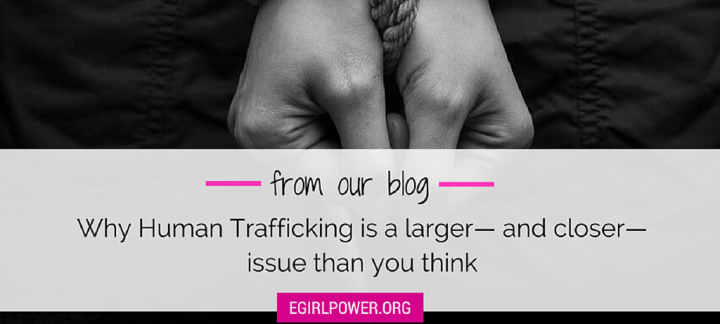Why Human Trafficking is a Larger—and Closer—Issue than you think
What is human trafficking?
Human trafficking is modern-day slavery. According to U.S. Federal law, in close relation to the definition of the United Nations, human trafficking is defined as 1) sex trafficking, in which a commercial sex act is “induced by force, fraud, or coercion” or 2) the recruitment, harboring, transportation provision, or obtaining of a person for labor or services, through the same use of force “for the purpose of subjection to involuntary servitude…or slavery.”
Human trafficking is a haunting reality for countless women around the globe. Trafficking is not limited to women, as it also incorporates men and children in slave and sex labor, but it does most adversely and traumatically affect women. Of the 800,000 people trafficked internationally every year, 80 percent are women and girls; of that population, 70 percent of female victims are trafficked into the slave trade, and the remaining 30 percent are trafficked into forced labor.
Shockingly, the Global Initiative to Fight Human Trafficking states that 2.5 million people (at least) are currently in forced labor, including sexual exploitation, with ten percent of those being in “industrialized coutnries,” including the United States. The majority of victims are between 18 and 24 years old. Most of these victims have at least middle-level education and come from multiple economic bases.
The sad fact of the matter is that very few of the traffickers are charged with any legal incrimination. Actually, most of these suspected traffickers are actual nationals in the countries they are committing these crimes. The U.N. GIFT organization reports that in 2006, there were only 5,808 prosecutions and 3,160 convictions in the world; therefore, only one person was convicted for trafficking for every 800 persons trafficked.
This is tragic.
The United States is not immune to this phenomenon. Recently, trafficking.org issued a report stating at least 50,000 women and children are trafficked within America each year, whether for sexual or labor-involved servitude. This always involves lack of will – of being forced – so truly to continue to miss so much of these incidents, the law and we as citizens must be, in some respect, turning a blind eye.
We must be aware of the prevalence of human trafficking and how it affects women in order to make informed decisions. Let’s urge our lawmakers to adopt reforms that negatively impact this terrible rise in human – and feminine – exploitation.
Help eGirl Power fight gender inequality and change the future of hundreds of girls in need through education. Donate now.


